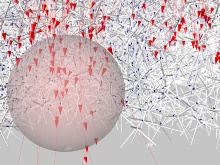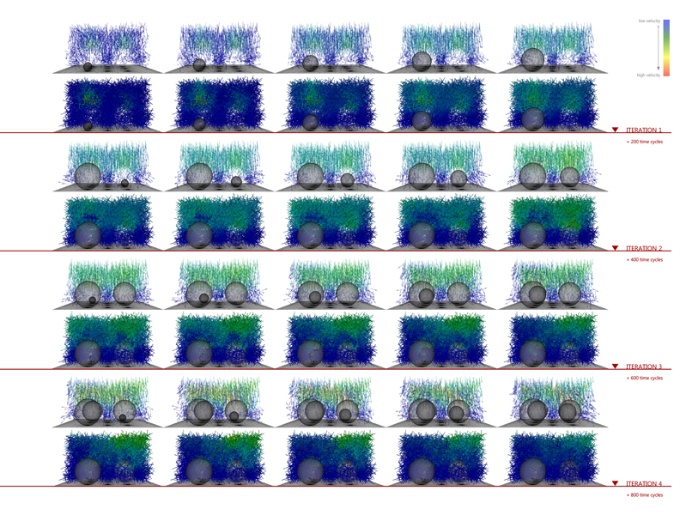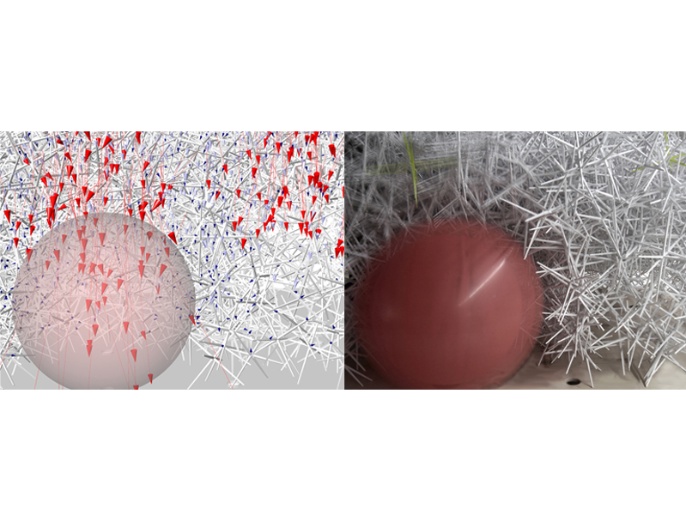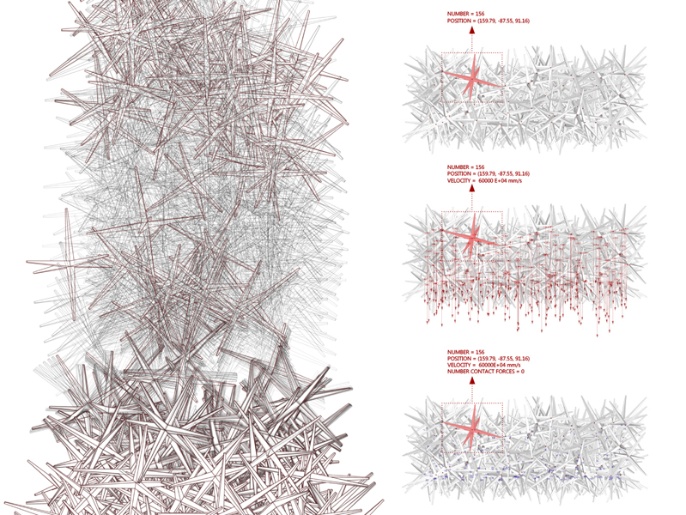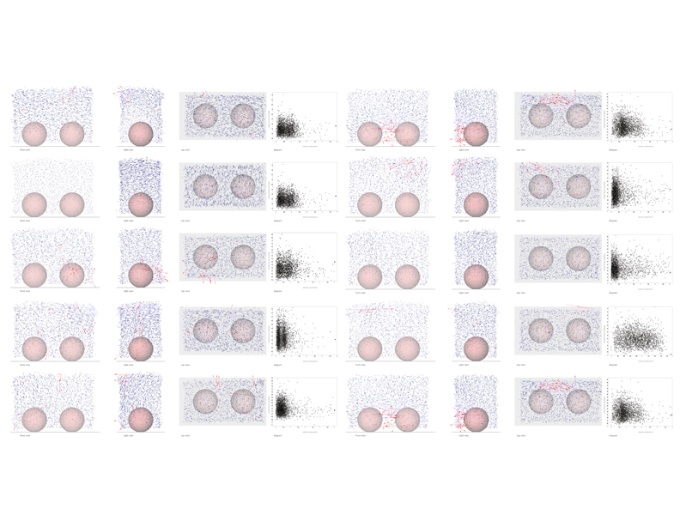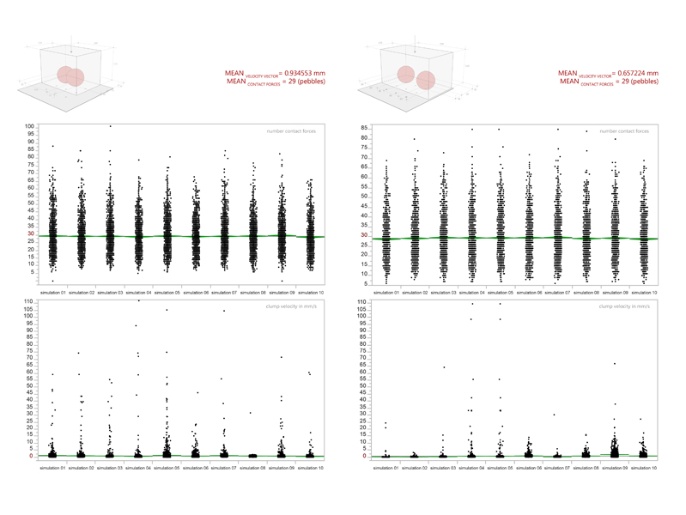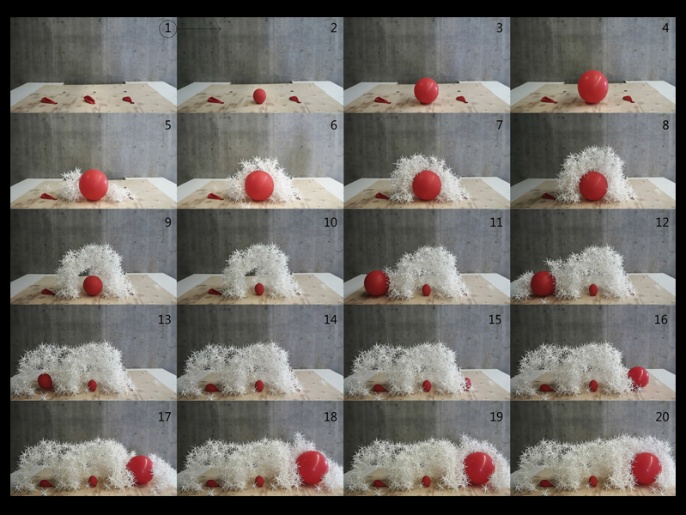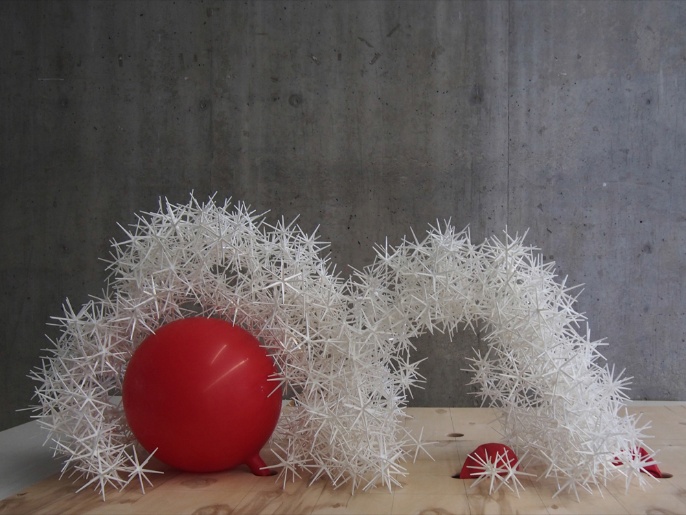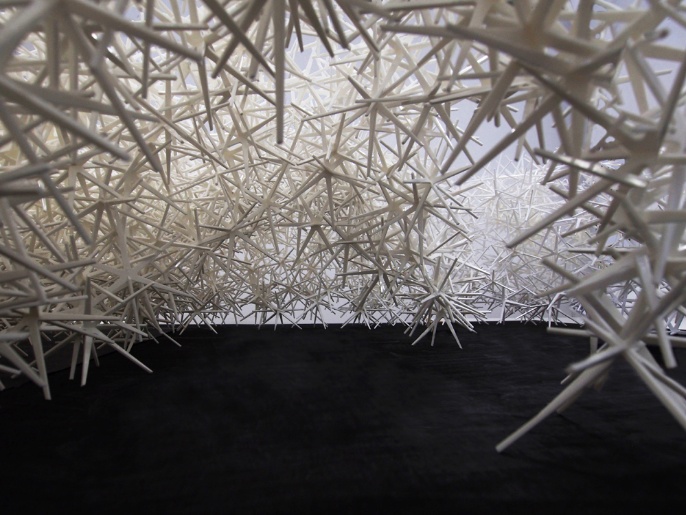Emergent Space - Simulations and Analyses of Spatial Aggregate Formations
Emergent Space contributes to the investigations in the field of Aggregate Architecture by linking together two research areas: the simulations of aggregates formations, and the concept of an adaptive formwork system.
The aim was to investigate the capacity of aggregates to construct emergent spatial formations. The focus is on simulations and analyses of their micro-mechanical behaviour, and the stability of the formations as a main design driver. An online-controlled system for an adaptive inflatable formwork was created, which based on the simulation results reacts to the actual stability state of the aggregate formation. The overall concept was also proven and verified in a one-to-one scaled physical model.
This research aims at a novel design approach where the concept of emergence is discussed in the context of two overlaying systems. On the one hand, the capacity of aggregates to collectively and dynamically change the state of the overall composition from fluid to static and backwards over time predefines their ability to construct emergent spatial formations. On the other hand, based on statistical observations of the material, the emergent behaviour of the formwork system is being triggered. Both systems, formwork and material, work together in a process that can be described as a continuous feedback loop. The behaviour of one system is the cause for the performance of the other one, and vice versa. The final result of the system’s collaboration is considered an emergent spatial aggregate formation.
ITECH M.Sc. Thesis Project 2015: Emergent Space - Simulations and Analyses of Spatial Aggregate Formations
Gergana Rusenova
Thesis Advisers: Karola Dierichs, Ehsan Baharlou
Thesis Supervisor: Prof. Achim Menges
Second Supervisor: Prof. Jan Knippers
Sponsoring: Itasca Educational Partnership Program (IEP)
Emergent Space contributes to the investigations in the field of Aggregate Architecture by linking together two research areas: the simulations of aggregates formations, and the concept of an adaptive formwork system.
The aim was to investigate the capacity of aggregates to construct emergent spatial formations. The focus is on simulations and analyses of their micro-mechanical behaviour, and the stability of the formations as a main design driver. An online-controlled system for an adaptive inflatable formwork was created, which based on the simulation results reacts to the actual stability state of the aggregate formation. The overall concept was also proven and verified in a one-to-one scaled physical model.
This research aims at a novel design approach where the concept of emergence is discussed in the context of two overlaying systems. On the one hand, the capacity of aggregates to collectively and dynamically change the state of the overall composition from fluid to static and backwards over time predefines their ability to construct emergent spatial formations. On the other hand, based on statistical observations of the material, the emergent behaviour of the formwork system is being triggered. Both systems, formwork and material, work together in a process that can be described as a continuous feedback loop. The behaviour of one system is the cause for the performance of the other one, and vice versa. The final result of the system’s collaboration is considered an emergent spatial aggregate formation.
ITECH M.Sc. Thesis Project 2015: Emergent Space - Simulations and Analyses of Spatial Aggregate Formations
Gergana Rusenova
Thesis Advisers: Karola Dierichs, Ehsan Baharlou
Thesis Supervisor: Prof. Achim Menges
Second Supervisor: Prof. Jan Knippers
Sponsoring: Itasca Educational Partnership Program (IEP)


